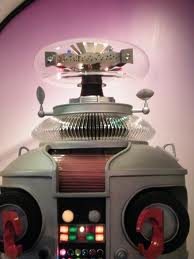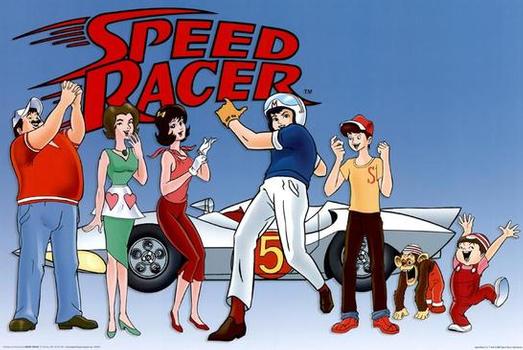By Rich Feldenberg:
With the movie, “Superman vs. Batman: Dawn of Justice” soon to hit theaters, it makes me wonder, why? Why would Superman and Batman be at odds with one another? Why would they battle when they are both supposed to be on the side of good? It may be fun to think about, who would win in a fight, Superman or Batman, Abraham Lincoln or George Washington, Indiana Jones or Han Solo? But again, why would they fight to begin with? Lately, there has been a different sort of war between good vs good, that has resurfaced. It is that of Science vs. Philosophy, and it has mainly been revived by a group of vocal physical scientists, that could be accused of extreme Scientism.
Now, Philosophy has been around for a long time. At least since the time of the ancient greeks, while the modern scientific method (and hence modern science as we would recognize it today) is generally agreed to have begun around the time of Galileo, around 400 years ago. That’s not to discount some of the ancients who made important observations of the natural world and contributions to math and logic, but the idea of hypothesis driven experimentation is a more recent phenomenon. In fact, many of the ancient “scientists” didn’t believe it was necessary to experiment at all, that pure logical reasoning should be enough to uncover the secrets of nature. Most of these armchair deductions have since been found to be false, even if based on good logical reasoning. The reason, it turns out, is that you really do have to test your basic underlying assumptions against the real world. Often the presumptions are incorrect and deviate from what seems to be common sense, or there may simply be many other factors that were unknown, but then uncovered by the experimental data.
Prior to Galileo, science and philosophy were more unified, and what we might label as science today would have been identified as natural philosophy then. Since the split, the two disciplines have diverged and become increasingly unique in their scope, like an ancient gene duplication event leading to paralogous gene families, or perhaps like the unification of universal forces right after the big bang fracturing into what appears to be completely separate forces such as the strong nuclear force and electromagnetism. If the two have a common origin can they really be so different? As noted by many philosophers, there has been a steadily increasing hostility towards philosophy by some prominent scientists, especially physicists in many cases. If hostility seems a strong word, then it at least appears justified to declare the attitude of these scientists as indifferent to philosophy – a disciple that lost its usefulness once science arrived on the scene. Those poor misguided philosophers!
I have heard statements from some top scientists reveal their dismissive attitude towards philosophy. People like Stephen Hawking, Neil DeGrass Tyson, Brian Cox, Lawrence Krauss, and most recently Bill Nye, the science guy, himself! All people I have a great deal of respect for when it comes to their areas of expertise. What I think these smart individual get wrong is a misunderstanding of what philosophy really is. They certainly know what science is, but I believe that their understanding of philosophy is lacking.
Now let me be clear, I’m not a philosopher, at least not by training. I took a couple philosophy courses in college, but that was the extent of it. I consider myself much more aligned with the world of science. Perhaps a number of years ago I might have agreed with the scientists that have decided philosophy is dead, and science rules all. I don’t think I feel that way anymore, not at all. After learning more about the philosophy of science (POS) in the last few years I’m much more convinced that there is a lot there that is of benefit to scientist and non-scientist alike. I’ve come that that conclusion by listening philosophers like Massimo Piglucci and Rebecca Goldstein discuss, explain, and debate philosophical topics. I’ve read a some articles and a few books. Again, this doesn’t make me a philosopher, not by a long shot, but it does make me appreciate the relevance of the topic to our lives today, and value the skills of it’s practitioners.
We all know that science has been hugely successful. It’s method of “question everything”, “experiment to find the answer”, and “self correction” by updating with new data, is by far the best way we have to gather new knowledge. Today we understand how the world works orders of magnitude better than we did 500 years ago. Science has given us understanding, but it’s benefits don’t stop there. It has transformed everything about how humans live. So, what has philosophy done for us lately?
Philosophy is important in helping us understand whether our basic assumptions about how science works are valid, in what settings science can work, and in which other setting it may not give us meaningful answers (i.e.. Like in questions of morality and ethics, or questions of purpose, for example). Philosophy won’t be able to answer what lies beyond the standard model of physics, or if our universe is one of many in a multiverse, but it may be able to help decide if those questions are scientific ones or not. Philosophy can help us understand how to apply critical thinking and rationality to our lives. As the title of philosopher Rebecca Goldstein’s article in The Atlantic asks then answers its self, “Why study philosophy? To challenge your own point of view.” That seems to be an important aspect for any rational creature that values self growth and learning. Some scientist go so far as to claim that science can answer moral questions. While science can inform the discussion (such as answering questions like can animals feel pain) it can not answer those questions of morality on it’s own. Philosphopy is better equipped to shed light on the questions of, “what is the best way to live one’s life”, “where does one find purpose”, and “what are ethical choices”. Of course, religion also claims a monopoly on this territory, but from a purely authoritarian approach, with it’s logical underpinnings coming after the presumption of a “law giver” instead of allowing the a questioning of all basic assumptions and following the flow of logic from there. In earlier times religion was eager to claim scientific truths (facts about the physical world), as well, (for quite a long time it was pretty much the only game in town), but as science has now advanced to such a high degree there are few modern thinking theologians that would claim that scriptures are books of science. They are now only metaphor when in contradiction to established scientific consensus.
So, who would win in a fight, Science or Philosophy? Well, they shouldn’t be fighting to begin with. They are both of use to us poor mortals as we try to make sense of the world we’ve been born into. They each bring an important skill set to the table. Is Superman like science and Batman like philosophy? Superman seems to have almost limitless power, but does have certain weaknesses as well, such as susceptibility to Kryptonite and perhaps an overly naive nature. Batman, meanwhile, possessing human frailty is immune to Kryptonite, has become who he is by dedicated work and training (he wasn’t just given magical powers), and is motivated by dark human emotions of past pain and suffering.
The issue of who would win, science or philosophy may be a bit like the joke I heard one time about who would win in a fight, a tiger or a shark? Each would win if the fight takes place in its own domain.

References:
1. “Why Study Philosophy? To Challenge your own point of view.” The Atlantic by Rebecca Goldstein. Feb. 27, 2014.
2. “Mike, don’t listen to Bill Nye about philosophy”, Plato’s footnotes blog by Massimo Piglucci. Feb. 29, 2016.
3. “A physicist flirts with philosophy and lives to tell the tale”, Scientific American. Sept. 23, 2011.
This was an interview with physicist Brian Cox, and to Professor Cox’s credit he describes his recent acknowledgment of the importance of philosophy.
4. Rationally Speaking: Exploring the borderlines between reason and non-sense. Podcast with host Julia Galef.
5. “Science can answer moral questions“, Youtube link to TED talk by Sam Harris (neuroscientist, skeptic, and atheist). I’m arguing against this point of view, but see what you think!

